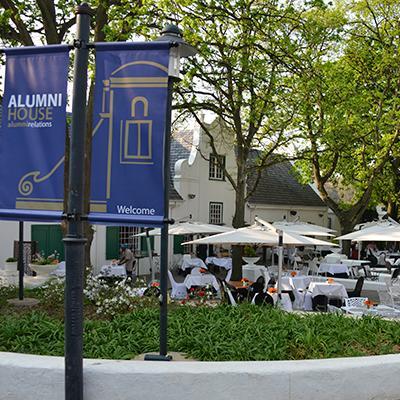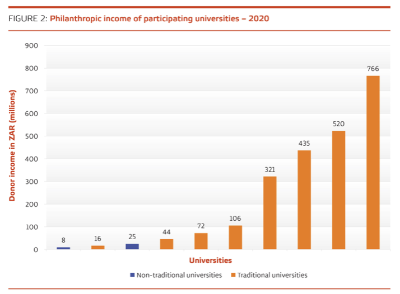Culture of giving on the increase
- Wits Alumni Relations
Latest survey on donors in higher education shows robust levels of civic responsibility by South Africans.
A research initiative undertaken by Inyathelo, the South African Institute for Advancement, released its eighth Annual Survey of Philanthropy in Higher Education (ASPIHE) on 15 November 2023.
The survey indicates an increase in philanthropic contributions to South African universities valued at R2.31bn in 2020, nearly double that of funding in 2019.
This upward trend in giving highlights the commitment of donors in addressing pressing pandemic issues such as emergency relief, medical research and digital technology support.
Key findings from the ASPIHE 2020 report include:
More donors: Some 11 244 donors contributed to 10 institutions in 2020, compared with 4 355 donors in 2013.
Parity in giving: The proportion of income from international donors, 50%, was matched by South African sources. This suggests robust levels of civic responsibility by South Africans.
Shift in allocation: Unlike previous years, when student funding received the bulk of philanthropic support, the pandemic caused a significant shift. Some 40% of funds were directed to infrastructure, such as vaccination stations, and less than 30% to student funding.
Greater staff investment: The 10 participating universities employed 178 full-time and part-time staff in fundraising, development and alumni relations by 31 December 2020. This was just below 2019 and 2018 figures, and an increase from the total of 136 staff in the 2013 sample.
“The numbers suggest that the more an institution spends on attracting philanthropic income, the higher the income amount. That is, the more fundraising, alumni relations and associated support staff an institution has, the higher its philanthropic income," says Professor Beverley Thaver, Professor in Higher Education Studies and lead researcher.
"Nonetheless, the higher the income received, the greater cost. Three institutions had expenditure ratios ranging from 18% to 40%, way above the international benchmark of between 8% and 12%.” 
South African universities are divided into three types: traditional universities which offer theoretically oriented university degrees; universities of technology which offer vocational-oriented diplomas and degrees; and comprehensive universities which offer a combination of both types of qualification.
The 10 universities that participated in the latest research were the Durban University of Technology; Tshwane University of Technology; University of Cape Town; University of the Free State; University of Johannesburg; University of KwaZulu-Natal; University of Pretoria; Stellenbosch University; University of the Western Cape; and Wits.
Source: Inyathelo

